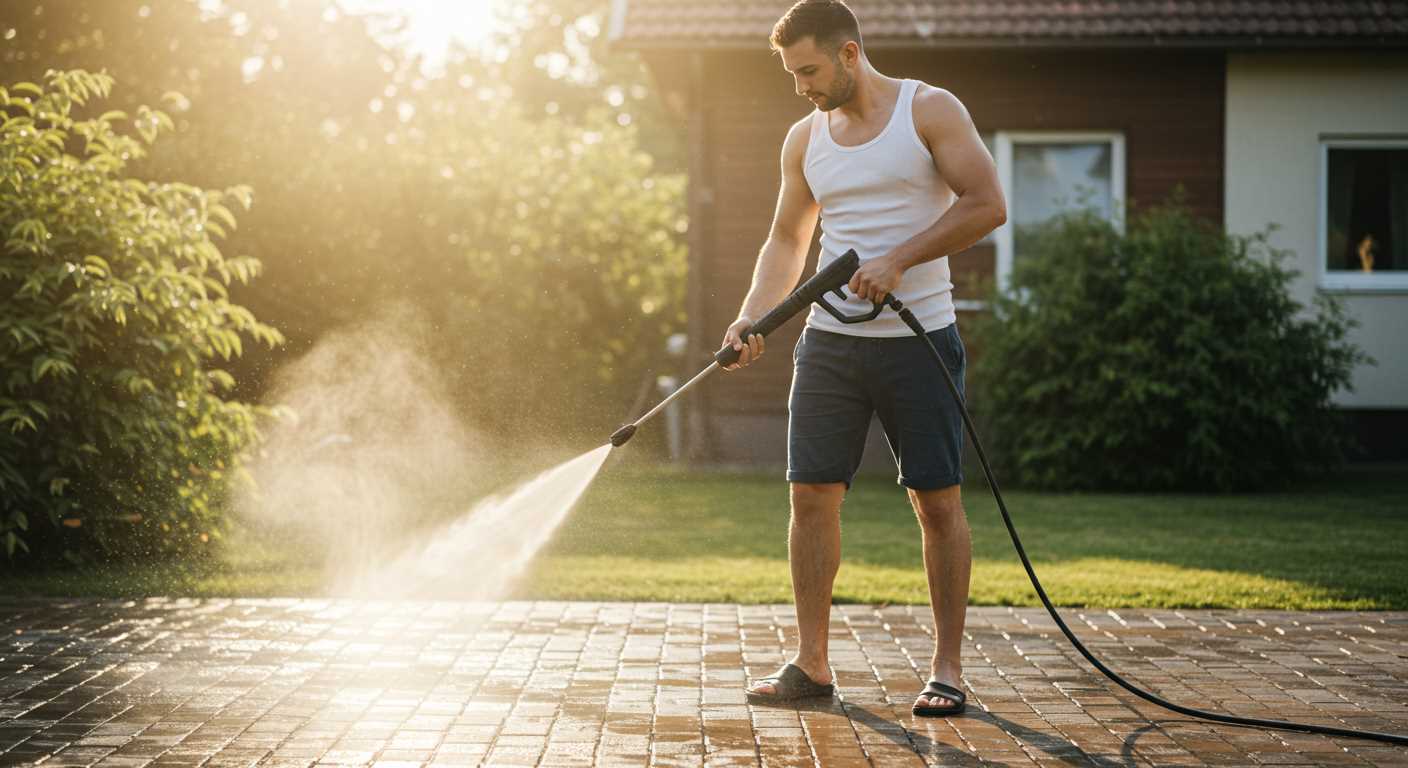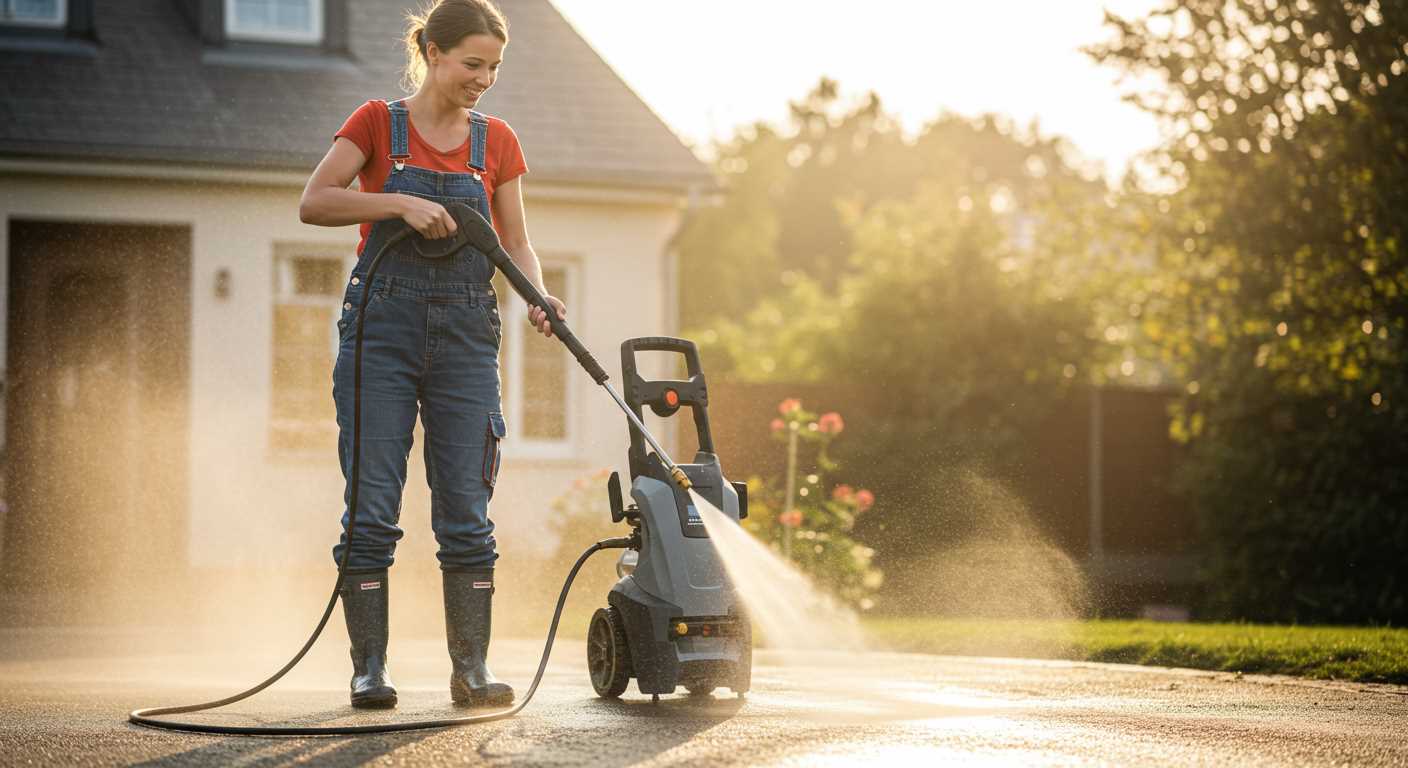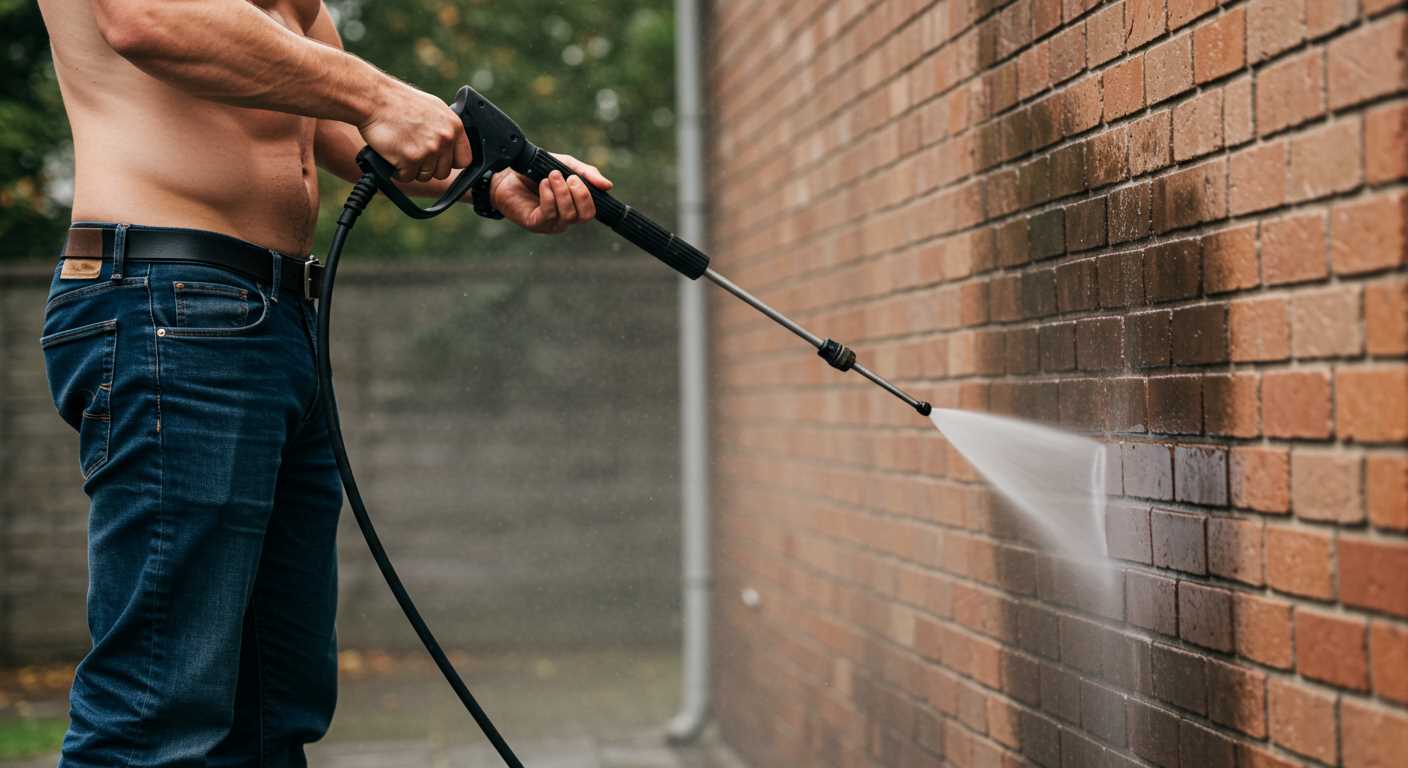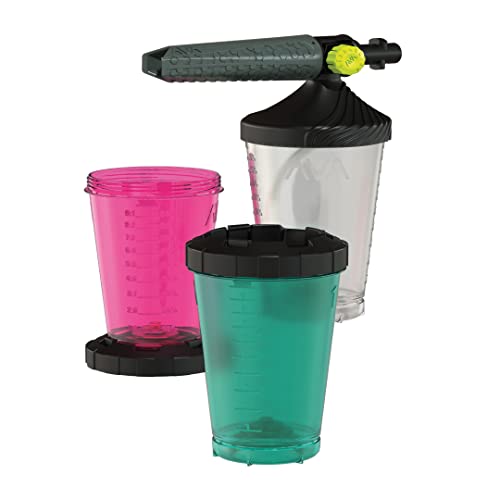



Having tested and assessed numerous cleaning devices over a decade, I confidently recommend the Sun Joe SPX3000 as a standout option. With a robust 14.5-amp motor generating up to 2030 PSI, this unit tackles diverse tasks, from grime on patios to vehicles requiring gentle care. Its dual detergent tanks allow you to switch between different soaps effortlessly, maximising versatility.
Moreover, the adjustable pressure settings provide the necessary control for various surfaces, ensuring no damage occurs during use. The included five nozzles cater to specific cleaning needs, making it a highly adaptable choice. Weighing in at just 31 pounds, it’s light enough to transport easily, yet sturdy enough for demanding jobs.
For those seeking enhanced portability, the AR Blue Clean AR383 delivers impressive power without sacrificing ease of use. Producing 1900 PSI, it comes with a 20-foot high-pressure hose, allowing ample range while tackling tough stains. Its compact design is ideal for tight spaces, and the on-board storage keeps accessories organised.
Ultimately, choosing the right equipment hinges on the intended use and specific cleaning tasks. By considering these top recommendations, anyone can maintain their outdoor spaces efficiently, ensuring they remain pristine with minimal effort.
Understanding Pressure Washer Specifications
To select an optimal cleaning device, focus on three key specifications: PSI (pounds per square inch), GPM (gallons per minute), and motor type. Clear understanding of these metrics can remarkably enhance cleaning results.
PSI indicates the force of water delivered. A model with 2000-3000 PSI is suitable for general tasks like deck cleaning or vehicle washing. For tougher jobs, consider options exceeding 3000 PSI, especially for stripping paint or removing stubborn grime.
GPM measures water flow, affecting how quickly you can complete a job. Aim for 2.0-2.5 GPM for standard cleaning; higher GPM values allow for quicker rinsing. Balancing PSI and GPM optimises efficiency, as more water at high pressure effectively removes dirt without excessive scrubbing.
| Specification | Recommended Range | Use Case |
|---|---|---|
| PSI | 2000-3000 | General cleaning (decks, vehicles) |
| GPM | 2.0-2.5 | Efficient dirt removal |
| Motor Type | Electric / Gas | Residential / Heavy-duty tasks |
The motor type significantly influences durability and power. Electric options are quieter and easier to maintain but offer less mobility. Gas-powered machines deliver greater power and are ideal for extensive outdoor use. Choose based on cleaning frequency and space where the equipment will be used.
Honest evaluation of your needs, coupled with these specifications, will lead to a sound investment in cleaning technology, ensuring maximum satisfaction and long-term utility.
Choosing the Right PSI and GPM for Household Tasks
To efficiently tackle common household chores, focus on selecting equipment with a pressure rating between 1300 to 2300 PSI and a flow rate of 1.2 to 2.5 GPM. This range provides sufficient power to clean various surfaces without causing damage.
Understanding PSI
Pressure measured in PSI (pounds per square inch) determines how forcefully water is expelled. For tasks like washing cars or cleaning patio furniture, 1300 to 1600 PSI is sufficient. For tougher jobs such as removing mildew or cleaning concrete driveways, look for models within the 2000 to 2300 PSI range.
Considering GPM
GPM (gallons per minute) indicates water flow. A higher GPM means more water is delivered, enhancing rinsing capabilities. For light-duty tasks, 1.2 to 1.5 GPM works well, while 2.0 GPM and above is preferable for heavy-duty tasks to ensure thorough cleaning and swift completion.
By tailoring PSI and GPM to the specific job at hand, you can optimize performance and achieve spotless results every time.
Comparing Electric vs. Gas Pressure Washers
Choosing between electric and gas models depends on task requirements and user preferences. Electric options are ideal for light to medium jobs. They typically produce lower noise, are cleaner to operate, and require less maintenance. This makes them suitable for residential use, especially in neighbourhoods where noise might be an issue.
Electric units usually range from 1300 to 2000 PSI and are well-equipped for activities like cleaning patios, vehicles, and outdoor furniture. They are plug-and-play: just connect to a power source, and you’re ready to go. However, their mobility can be limited by the length of the power cord.
In contrast, gas-powered models excel in heavy-duty tasks. With PSI ratings often exceeding 3000, they handle stubborn grime, large driveways, and deep cleaning of decks or siding. Their mobility is superior since they don’t rely on a power outlet, allowing for use in remote areas or large properties.
Gas machines do need more upkeep, including fuel refills and oil changes, and often produce higher emissions. If you require versatility and power, gas units are worth considering despite the additional maintenance. Ultimately, your choice should align with the nature and frequency of the cleaning tasks ahead.
Identifying Key Accessories for Enhanced Performance
To maximise efficiency and results, consider these accessories that enhance functionality. Each addition can significantly impact your cleaning tasks and extend usability.
Rotary Nozzles

- Best for tough stains with a rotating jet pattern that intensifies cleaning power.
- Ideal for driveways, patios, and decks, reducing the time spent on stubborn grime.
Surface Cleaners
- Perfect for large flat surfaces, offering even cleaning without streaks.
- Speeds up deep cleaning tasks by covering wider areas quickly and efficiently.
Extension Wands
- Allows access to high or hard-to-reach areas without straining.
- Use them for cleaning gutters, second-storey windows, and tall surfaces.
Detergent Tanks and Adaptors
- Facilitates the use of cleaning solutions, especially for greasy or oily stains.
- Look for models that support adjustable chemical mixing for controlled application.
Brush Attachments

- Optimal for delicate surfaces like cars or tiles, preventing scratches.
- Enhances scrubbing power, making it easier to lift dirt and grime.
Investing in these accessories can transform your cleaning experience, making it more effective and efficient. With the right tools, you’ll find tackling various household tasks becomes simpler and quicker, saving both time and effort.
Top Brands and Models for Homeowners in 2023

In 2023, I recommend focusing on three prominent manufacturers: Sun Joe, Simpson, and Generac. Each offers reliable units tailored for residential cleaning tasks.
Sun Joe
The Sun Joe SPX3000 stands out with its versatility. Featuring a 14.5-amp motor, it delivers 2030 PSI and 1.76 GPM. This electric model is lightweight and easy to manoeuvre, ideal for patios, outdoor furniture, and vehicles.
Simpson
For those preferring a gas model, the Simpson Clean Machine CM60912 is an excellent choice. With a powerful Honda engine producing 3200 PSI and 2.5 GPM, it excels in tackling tough grime on driveways and siding. Its robust construction ensures longevity with minimal upkeep.
Generac
The Generac 6882 is a reliable option with a 196cc engine, offering 3100 PSI and 2.4 GPM. This unit is equipped with an adjustable nozzle, making it adaptable for various tasks, from light cleaning to heavy-duty applications.
When selecting a machine, consider ease of use, maintenance requirements, and the specific cleaning tasks you intend to undertake. Each brand and model listed here has proven efficacy and user satisfaction, making them sound investments for residential needs in 2023.
Maintenance Tips to Extend the Life of Your Cleaning Device
Regularly check and replace the oil in gas-powered units. This simple task enhances engine performance and longevity. Make it a habit to inspect oil levels after every 20 hours of operation, or as specified by the manufacturer’s guidelines.
For electric variations, keep the power cord in pristine condition. Inspect it for frays or damage before each use. Avoid wrapping the cord tightly around the machine, as this can cause wear and tear over time.
Cleaning and Storage
After each use, flush the system with clean water to prevent clogs and remove detergent residues. Disconnect the nozzle and run the motor briefly to expel any trapped water. Allow the machine to dry completely before storage.
Store indoor in a cool, dry location during off-seasons. If storing for an extended period, consider using a fuel stabiliser in the tank of gas models to prevent gumming and corrosion.
Filter Care
Check and clean the water inlet filter regularly. A clogged filter restricts water flow, potentially damaging internal components. Remove the filter, clean it with water, and let it air dry before reinserting.
Following these maintenance practices will significantly enhance the lifespan of your cleaner. Consistent care leads to optimal performance and reliability, ensuring it serves you well for many years.
FAQ:
What features should I look for in a pressure washer for home use?
When selecting a pressure washer for home use, there are several important features to consider. First, you should look at the power rating, typically measured in PSI (pounds per square inch) and GPM (gallons per minute). A machine with a PSI between 1300 and 2000 is usually suitable for household tasks like cleaning patios, driveways, and vehicles. Additionally, consider the type of pressure washer: electric models are quieter and easier to maintain, while gas models tend to offer more power but require more upkeep. Another factor to consider is the length of the hose and power cord, as a longer reach can make your cleaning tasks more convenient. Also, look for interchangeable nozzles for versatility in cleaning, and ensure the unit has a decent warranty for peace of mind.
Are gas or electric pressure washers better for homeowners?
Both gas and electric pressure washers have their own advantages, making the choice dependent on your specific needs. Gas pressure washers typically provide higher pressure and flow rates, making them suitable for more demanding tasks such as heavy-duty cleaning and large areas. However, they can be more challenging to start, require regular maintenance, and are noisier. Electric pressure washers, on the other hand, are generally lighter, easier to manoeuvre, and require less maintenance. They are perfect for occasional cleaning tasks around the home, such as washing cars or outdoor furniture. Consider the size of the area you need to clean and the frequency of use to decide which type will serve you best.
How much should I expect to spend on a good pressure washer for home use?
The price of a good pressure washer can vary significantly based on its features and specifications. Generally, you can expect to spend between £100 to £300 for a reliable electric model that suits most home cleaning needs. If you opt for a gas model, prices can range from £250 to £600, depending on the power and capabilities. It’s a good idea to set a budget based on the tasks you intend to perform, as investing in a slightly more expensive model may save you time and effort in the long run. Look out for seasonal sales or discounts, as many retailers offer good deals throughout the year.







